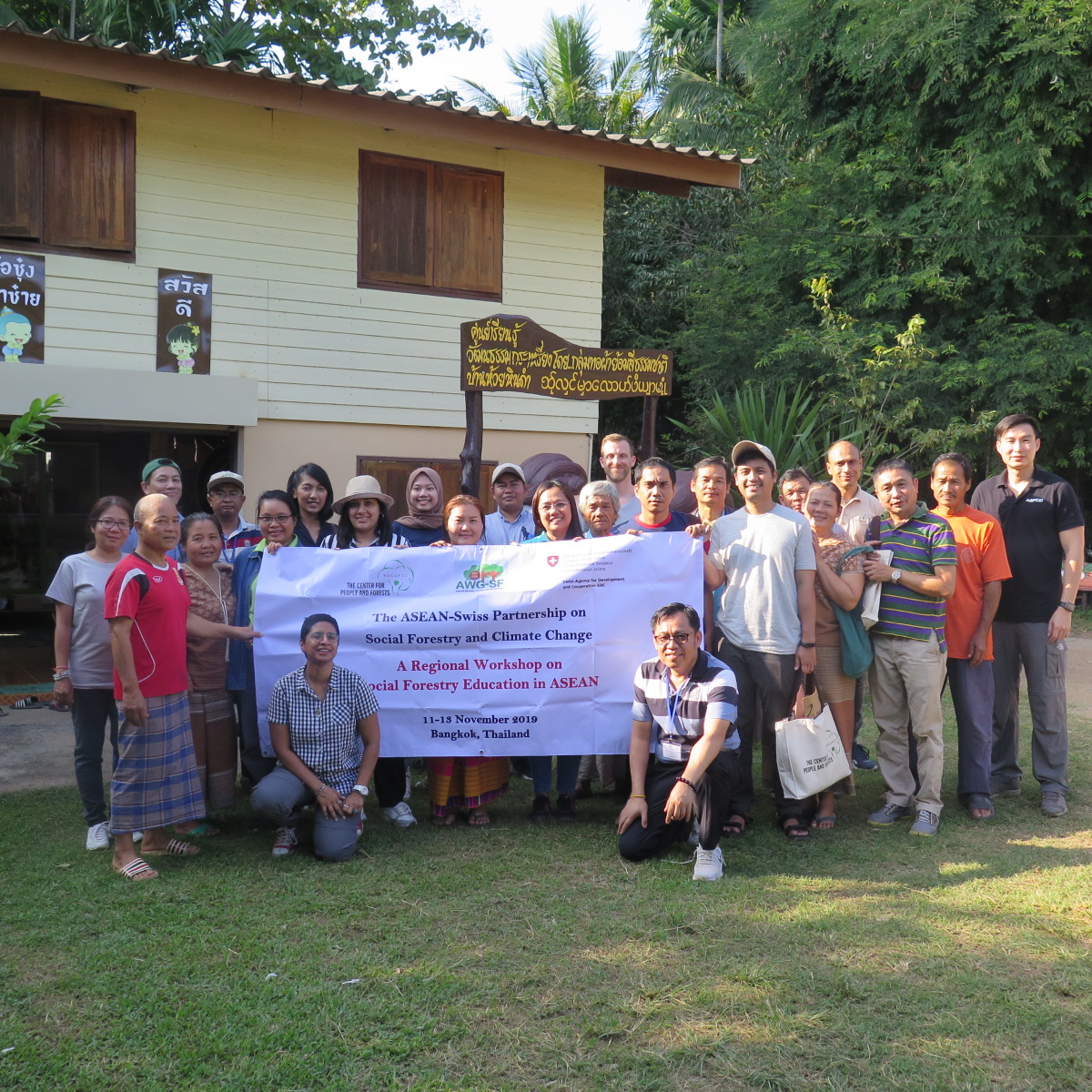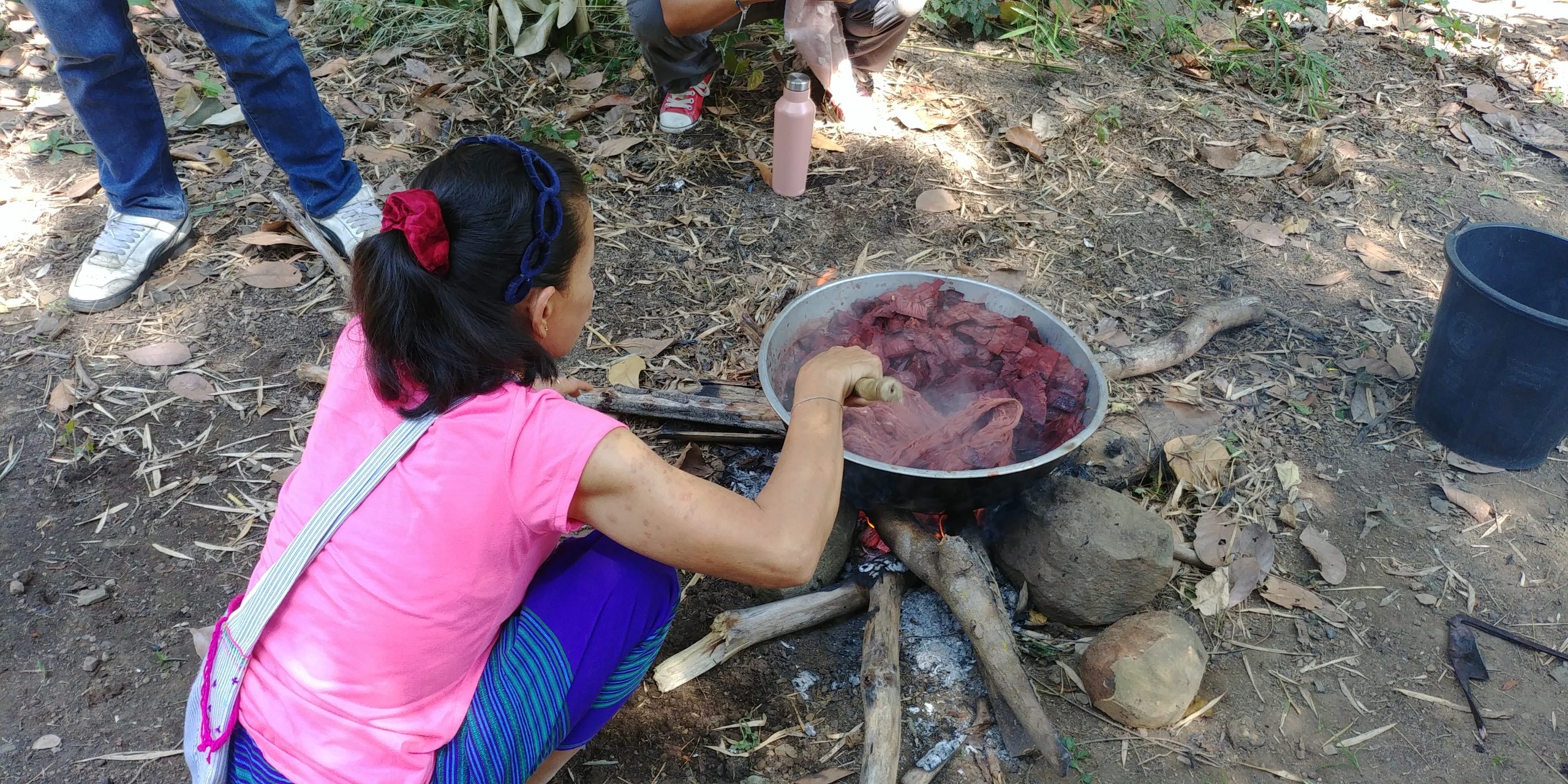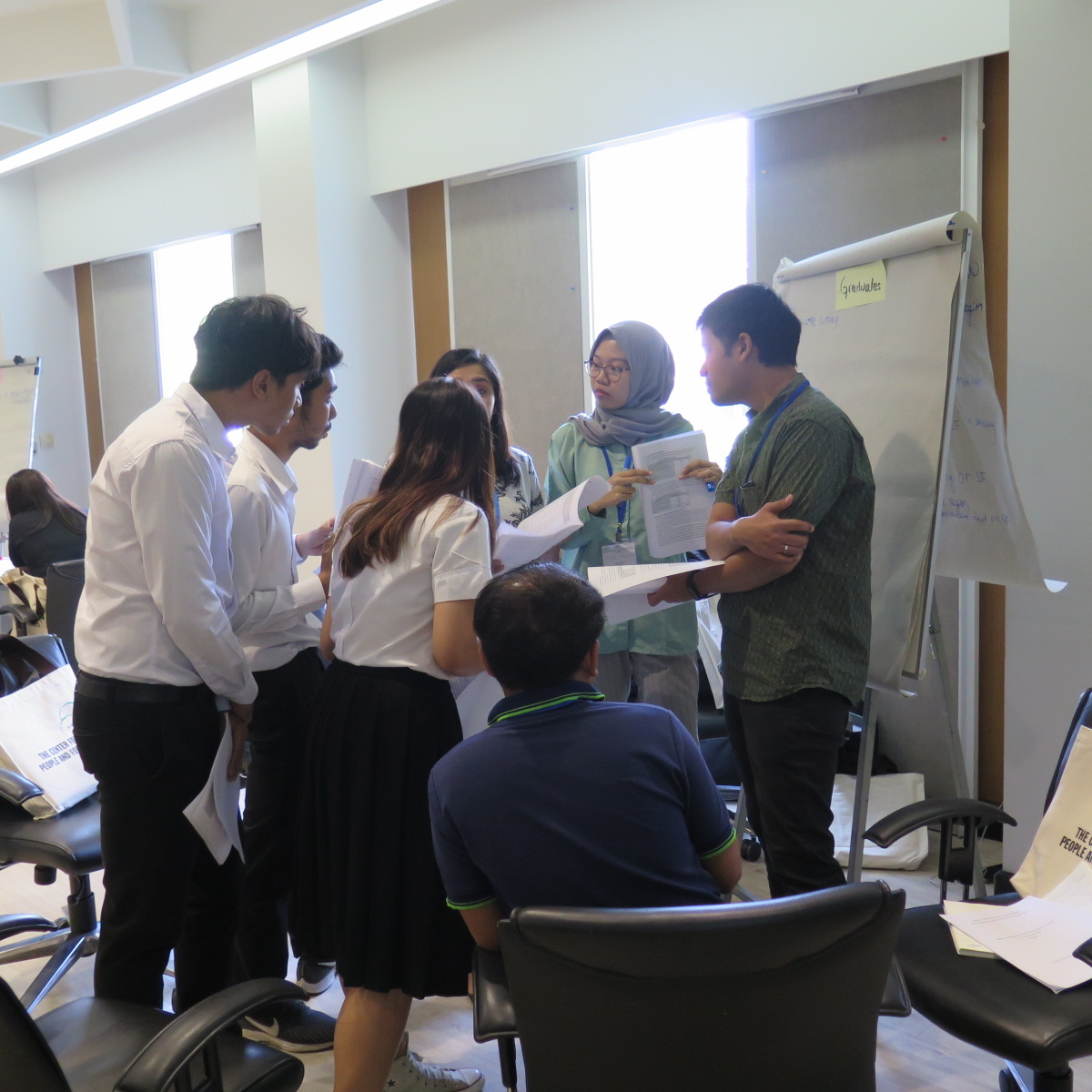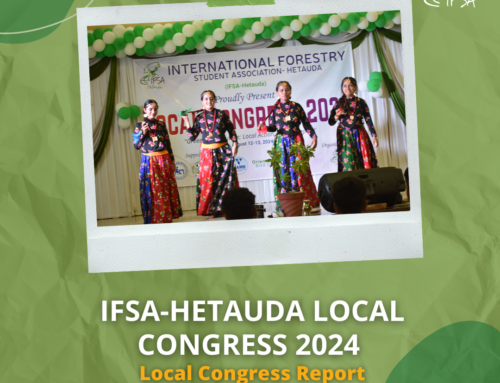Dear IFSA friends,
I’m Shofi Fauziyyah, a master’s student and a member of IFSA LC-IPB Indonesia. On 11th to 13th November 2019, I had the opportunity to join the Regional Workshop on Social Forestry Education in ASEAN by The Centre for People and Forests (RECOFTC) in Bangkok, Thailand. RECOFTC has been the forefront of community forestry in Asia-Pacific region since 1987. The workshop was attended by participants from Indonesia, Thailand, Myanmar, Lao PDR, Cambodia, Vietnam, Philippines and Nepal, from a broad range of occupations such as undergraduate and master students, lecturers and teaching staff, NGO representative, as well as scientists.
Dr. Rajane (RECOFTC) explained several modalities that has been used to refer SF practice and program in ASEAN. The different modalities were the result of long history, needs, and political will of each country. Land tenure rights and share benefits were common problems in SF shared by ASEAN countries during the discussion. The issue emerged mainly due to conflict of interest within the multi-stakeholders of SF.
The next session was continued by reviewing SF Education in ASEAN based on the survey shared in our Facebook page. The survey results showed that a high percentage of students who enrolled in SF program are employed in their field of study and most of them are working in government agency. Most of SF courses teaching method was still class-based teaching and learning process, thus students stated that experience and competitive job market has been becoming their biggest challenge in finding works because they didn’t possess specific skill sets and soft skills needed for the job. Skill set that were still highly on demand are facilitation, negotiation, use of information technology, critical thinking, and etc.
On the second day of the workshop we visited Baan Huia Hin Dum Community Forest where we met the Karen Tribe. The purpose of this visit is to find the urgency of social forestry issues in the reality; to observe how experiences from the course/field can help improve students’ skills and knowledge; and to analyse challenges and opportunities faced by student during SF course.
We were greeted with a warm welcome by the community. Karen tribe had 70 households with a total of 250 people in population. They have been occupying their location of living since 400 years ago, their livelihood and sustenance mainly depends on nature. That’s the main reason why they need to keep the sustainable forest management practices in order to keep their existence. The participants were divided into three groups to interview the Karen community in regards to sustainable CF practice, land tenure management, and gender issues. From this process we learnt how to formulate questions, synthesize information, and ethics needed to be a good interviewer.
General findings:
- Customary lands and rights are not legally recognized in protected areas (national park)
- Conflicting claims for land rights between forest residents and state
- Different perception on traditional farming practices between lowland and highland residents
- Limited rights for access and control over resources
- Uncertainty and insecure for long-term livelihoods
Specific findings (gender role):
Karen Tribe has high dependency on forest resources especially for water and food stock. The main profession is a farmer, and they use rotational farming system. Mr. Co (SF Committee and community member) stated that rotational farming is more sustainable from shifting cultivation. The transfer knowledge system from parents to their next generation are still happening. For instance, boys and girls start to learn how to weave from five years old. The weaver usually conducts a meeting for textile production plan every month. They use tree bark, flowers, and other NTFP products to produce pigments for the threads. The final products they usually retail in an exhibition program or other marketing opportunities are table cloth, small bag, and fabric. Each weaver, predominantly female, has been a significant contributor to the household (300 THB/weaver).
Discussion within the group
The last day of the workshop was the most stressful. There are certainly many challenges faced by SF educators and students during the teaching and learning process. Specific skill set and soft skills are the top two things that’s always be mentioned on the discussion. However, collaboration between employer and university in ASEAN are proven to be frail to provide students with the compulsory and essential expertise in the practice. Lecturers are entailed to be more creative in preparing their teaching materials, added to the request of skilful SF graduates by the employer. Many of the participant proposes more interactive learning and collaborative study between university and forestry organizations.
Output:
I propose interactive MOOC (Massive Open Online Course) of Social Forestry for youth and young professional, in hope with collaboration with RECOFTC, CIFOR, and RECOFTC alumnus. The purpose of this MOOC is to mainstream current issue in SF to youth as well as increasing youth involvement in SF program and practices. I already manage to contact CIFOR representative from the workshop and Mr. Lok from RECOFTC about this program, I hope within the next 6 months this agenda could become future projects of IFSA. I could provide assistance in proposal drafting and contacting the prospectus collaborators.
The article was written by Shofi Fauziyyah, a master student and member of IFSA LC-IPB Indonesia.
For any queries regarding the article please contact: sfauziyyah@gmail.com






